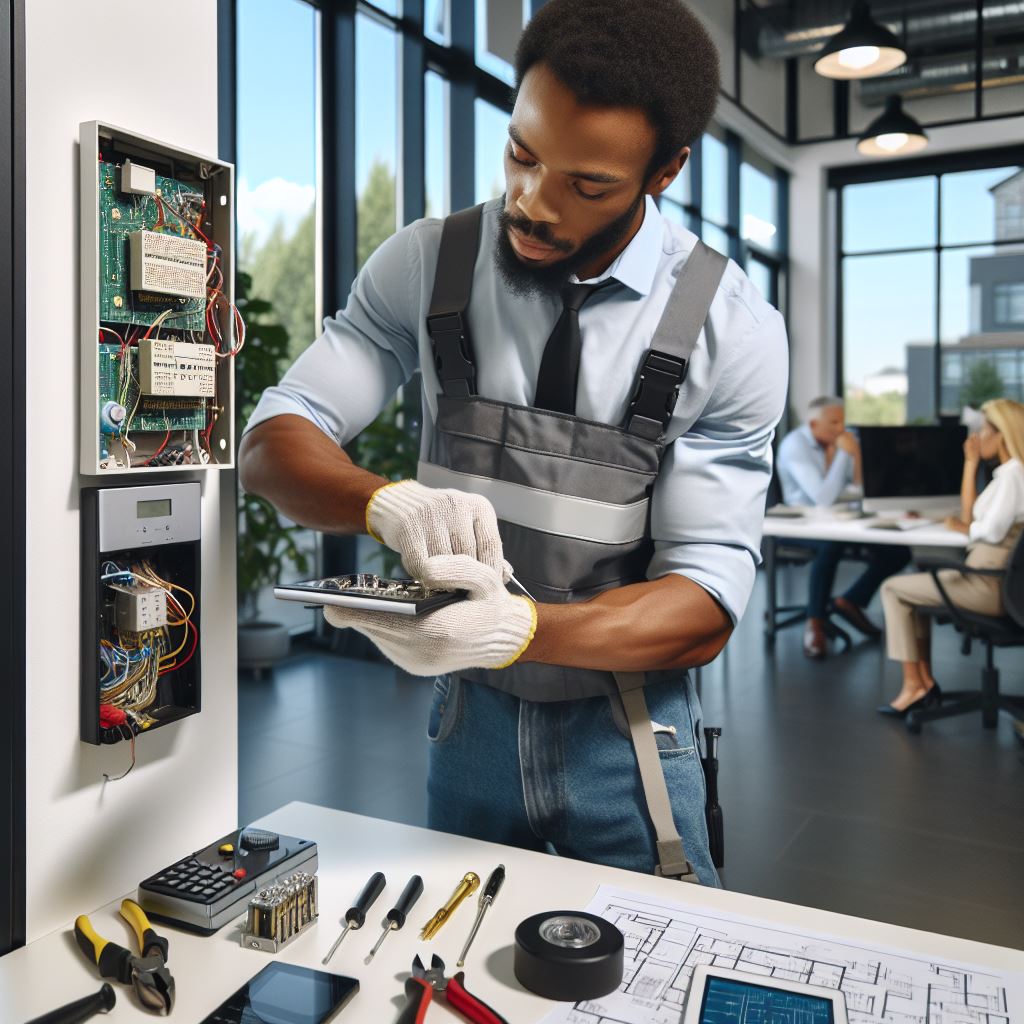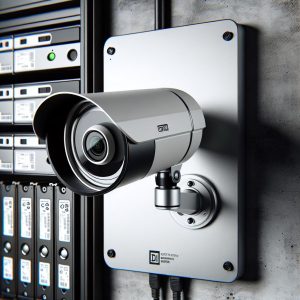Introduction
Maintaining your alarm system is crucial to ensure it functions correctly and provides the security you need. Regular maintenance helps prevent false alarms, ensures all components are working properly, and extends the lifespan of your system. This guide will cover various aspects of alarm system maintenance, including routine checks, troubleshooting common issues, and tips for keeping your system in top condition.
1. Importance of Regular Maintenance
Regular maintenance of your alarm system is essential for several reasons:
- Reliability: Ensures your system is always ready to detect and respond to security breaches.
- Prevention of False Alarms: Reduces the likelihood of false alarms, which can be disruptive and costly.
- Longevity: Extends the lifespan of your system by keeping all components in good working order.
- Peace of Mind: Provides confidence that your security system will perform when needed.
2. Routine Maintenance Checklist
To keep your alarm system in optimal condition, follow this routine maintenance checklist:
Weekly Checks:
- Check Batteries: Inspect the battery levels of all wireless devices, such as sensors and control panels. Replace batteries as needed.
- Clean Devices: Dust off the control panel and wipe down the lenses of security cameras with a microfiber cloth to ensure clear footage.
- Inspect Sensors: Ensure all door and window sensors are securely attached and functioning correctly.
Monthly Checks:
- Test the System: Conduct a full system test to ensure all components are working properly. Follow the manufacturer’s instructions for testing.
- Update Software: Check for and install any software updates for your alarm system and associated apps to ensure optimal performance and security.
- Inspect Wiring: Look for any signs of wear or damage to the wiring. Replace or repair as necessary.
Quarterly Checks:
- Inspect Outdoor Components: Check outdoor cameras and sensors for any signs of damage or obstruction. Clean and adjust as needed.
- Check Alarm Sounders: Test the alarm sounders to ensure they are loud and clear. Replace any faulty sounders.
- Review System Settings: Review and update your system settings, such as contact information and emergency contacts.
Annual Checks:
- Professional Inspection: Schedule a professional inspection of your alarm system to identify and address any potential issues.
- Replace Batteries: Replace the batteries in all wireless devices, even if they appear to be functioning correctly.
- Update Security Codes: Change your security codes and passwords to enhance security.
3. Troubleshooting Common Issues
Even with regular maintenance, you may encounter issues with your alarm system. Here are some common problems and how to troubleshoot them:
False Alarms:
- Check Sensors: Ensure all sensors are securely attached and not obstructed.
- Adjust Sensitivity: Adjust the sensitivity settings of motion detectors to reduce false alarms caused by pets or environmental factors.
- Inspect Wiring: Look for any loose or damaged wiring that could be causing false alarms.
Low Battery Alerts:
- Replace Batteries: Replace the batteries in the affected devices. If the alert persists, check for corrosion or damage to the battery contacts.
- Check Power Supply: Ensure the control panel and other wired components are receiving adequate power.
Communication Issues:
- Check Signal Strength: Ensure wireless devices are within range of the control panel and not obstructed by walls or other objects.
- Reset Devices: Reset the affected devices and re-pair them with the control panel.
- Inspect Wiring: Check for any loose or damaged wiring that could be affecting communication.
Camera Issues:
- Clean Lenses: Clean the lenses of security cameras to ensure clear footage.
- Check Connections: Ensure all cables and connections are secure and not damaged.
- Update Firmware: Check for and install any firmware updates for your cameras.
4. Tips for Maintaining Specific Components
Different components of your alarm system require specific maintenance. Here are some tips for maintaining key components:
Control Panel:
- Keep Clean: Dust the control panel regularly to prevent dust buildup.
- Check Display: Ensure the display is clear and functioning correctly.
- Test Regularly: Conduct regular tests to ensure the control panel is communicating with all sensors and devices.
Sensors:
- Secure Attachment: Ensure all sensors are securely attached to doors, windows, and other entry points.
- Check Alignment: Verify that sensors and magnets are properly aligned to avoid false alarms.
- Replace Batteries: Replace the batteries in wireless sensors regularly.
Cameras:
- Clean Lenses: Clean the lenses regularly to ensure clear footage.
- Check Positioning: Ensure cameras are properly positioned to cover the desired areas.
- Inspect Cables: Check for any signs of wear or damage to the cables.
Alarm Sounders:
- Test Regularly: Test the alarm sounders to ensure they are loud and clear.
- Check Mounting: Ensure sounders are securely mounted and not obstructed.
- Replace if Faulty: Replace any sounders that are not functioning correctly.
5. Professional Maintenance Services
While regular DIY maintenance is essential, professional maintenance services can provide additional benefits:
- Expert Inspection: Professionals can identify and address issues that may not be apparent during routine checks.
- Advanced Testing: Technicians can perform advanced tests and diagnostics to ensure all components are functioning correctly.
- Repairs and Upgrades: Professionals can repair or replace faulty components and recommend upgrades to enhance your system’s performance.
Conclusion
Regular maintenance of your alarm system is crucial to ensure it functions correctly and provides the security you need. By following a routine maintenance checklist, troubleshooting common issues, and seeking professional maintenance services when needed, you can keep your alarm system in top condition and enjoy peace of mind knowing your property is protected.




